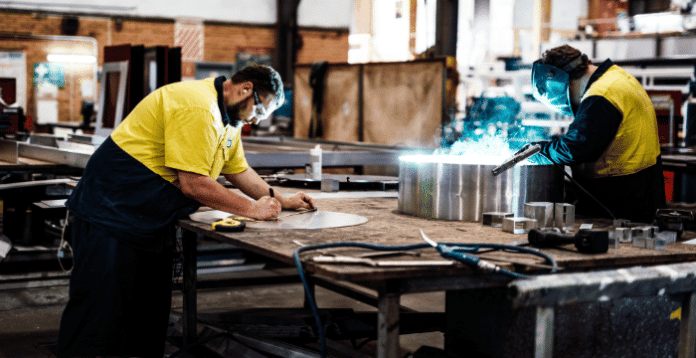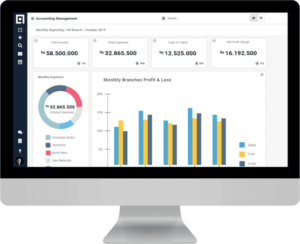For businesses that produce goods, understanding production cost is crucial to their success. Production costs refer to the expenses incurred during the manufacturing process, from the raw materials used to the labor and equipment required to produce the final product. These costs can be significant, and if not managed efficiently, can lead to reduced profits or even business failure.
The first step in understanding production costs is to identify all the expenses involved in the manufacturing process. This includes direct costs, such as the cost of raw materials, labor, and equipment, as well as indirect costs like utilities, rent, and insurance. Once these costs are identified, companies can determine the total cost per unit of the product.
Also Read: 7 Ways to Minimize Production Costs in a Manufacturing Company

Production Cost Definition
Production cost refers to the expenses incurred during the manufacturing process, including the cost of raw materials, labor, and equipment. These costs can be divided into direct and indirect costs. Direct costs include the expenses that are directly related to the production process, such as raw materials and labor. Indirect costs include expenses like rent, utilities, and insurance that are not directly related to production but are necessary for the overall business operation.
The Difference Between Production Cost and Manufacturing Cost
Although production cost and manufacturing cost may seem similar, there are some key differences between the two that companies should be aware of. Manufacturing cost refers to the expenses incurred during the actual process, including the cost of raw materials, labor, and manufacturing overhead.
On the other hand, production cost encompasses the entire process of creating a finished product, including both the manufacturing and non-manufacturing costs. This includes expenses such as research and development, marketing, and distribution.
Types of Production Cost
There are several types of production costs that companies need to be aware of when calculating the total cost of producing a product.
Fixed cost
Fixed costs are expenses that do not change with the level of production, such as rent, property taxes, and salaries of administrative staff. Fixed costs are incurred regardless of the level of production, and thus, they are spread out over a larger number of units as production increases, resulting in a lower cost per unit.
Variable cost
Variable costs vary with the level of production and include expenses such as the cost of raw materials, direct labor, and electricity. As the level of production increases, variable costs also increase, resulting in a higher cost per unit. By managing variable costs effectively, companies can optimize their production processes and reduce their overall expenses.
Total cost
Total cost is the sum of all production costs, including fixed and variable costs, associated with manufacturing a product. Total cost also plays a vital role in determining the break-even point, which is the minimum number of units a company must sell to cover all costs. Accurately calculating total cost is crucial for companies to make informed business decisions and maintain a competitive edge in their industry.
Average cost
Average cost is a type of production cost that represents the total cost per unit of a product. It is calculated by dividing the total production cost, including fixed and variable costs, by the total number of units produced. By understanding average cost, companies can determine an appropriate selling price that covers all expenses while still allowing for a reasonable profit margin.
Marginal cost
Marginal cost represents the cost of producing one additional unit of a product. It includes the additional costs incurred in producing an extra unit, such as the cost of additional raw materials and labor. If the marginal cost of producing an additional unit is lower than the selling price, it may be profitable to increase production.
You can also explore other articles related to job order costing vs project costing for a deeper understanding of the topic.
How to Calculate Production Cost
Calculating production costs is an essential step for businesses to accurately determine the total cost of producing a product and to set appropriate pricing. To calculate production costs, companies need to identify all the expenses involved in the manufacturing process, including direct costs, indirect costs, and opportunity costs.
Once they identify all the costs, companies can calculate the total production cost per unit of the product. They can do this by adding up all the direct and indirect costs and dividing the total by the number of units produced. After that, businesses can set a selling price that covers their expenses and allows them to make a profit.
Production Cost = Direct Costs + Indirect Costs + Opportunity Costs
Direct costs include the cost of raw materials and labor, while indirect costs encompass expenses like rent, utilities, and insurance. Opportunity costs refer to the potential profits that could have been earned if the resources used in the production process were used for an alternative purpose.
Easily Manage Production Cost with Accounting Software
It is crucial for companies of all sizes to manage their production cost effectively. The most effective way to do this is by utilizing technology, such as software. Accounting software can be an invaluable tool for companies looking to efficiently manage their production costs. An example of a top accounting software system companies can use is HashMicro’s Accounting Software.
With HashMicro’s accounting software, companies can easily track and manage all aspects of their production cost. The software offers a comprehensive set of features, including inventory management, job costing, and project management. By leveraging the power of accounting software to manage production costs, companies can increase their efficiency and profitability, while remaining competitive in their industry.
Conclusion
In conclusion, understanding and efficiently managing production costs is crucial for companies that want to increase profitability and remain competitive in their industry. By identifying and tracking all expenses, companies can accurately determine an appropriate selling price. Implementing cost-saving measures can also help companies to increase profitability.
Furthermore, leveraging technology like accounting software can make managing production costs much more efficient. Such software can help businesses to track and manage expenses, generate detailed reports, and streamline invoicing and payment processes. An excellent example of this is HashMicro’s Accounting Software. Schedule a free demo today and streamline your accounting processes!
















